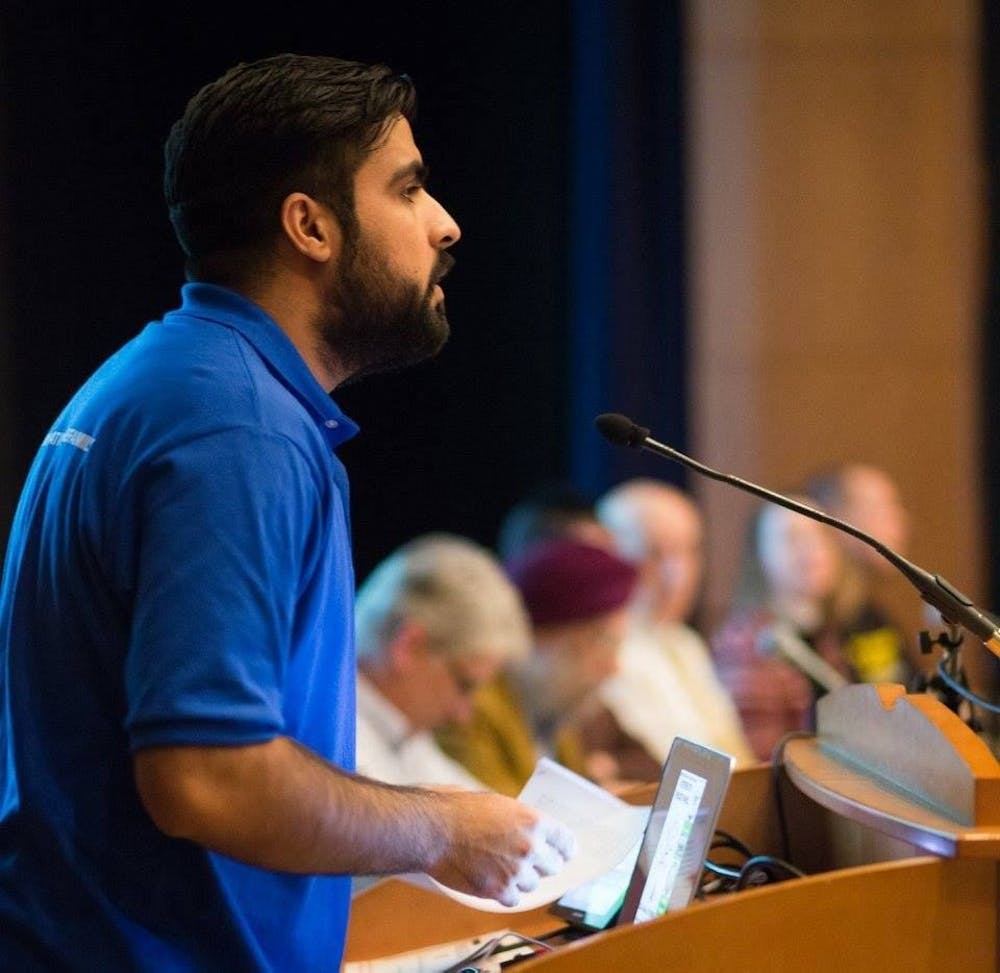In TEDx: "What Does Islam Mean to You?," a panel will discuss perceptions of Islam, how they are perpetuated and what it means to be Muslim.
For those who may be too embarrassed or self conscious to ask someone who is Muslim a question about his or her faith, the opportunity will be presented Wednesday at the Baker Center Theater.
A local extension of the TED program, TEDx, will present “What Does Islam Mean to You?” with help from the College of Arts and Sciences.
TED talks are short — 18 minutes or less — and are centered around “spreading ideas.” As a way to bring similar talks to local audiences, TEDx talks were created — separate from the TED company — that share similar characteristics with the larger, more formal TED talks. Catering will be provided by Restaurant Salaam.
In the TEDx talk, speakers will discuss perceptions of Islam, including how the religion is portrayed in social media and what it means to those who affiliate with the religion.
{{tncms-asset app="editorial" id="e8c7b9f0-eac8-11e5-bd3c-8386f6d541d3"}}
Hashim Pashtun, the president of the International Student Union at Ohio University, will be speaking at the event. Pashtun, a graduate student studying electrical engineering from Afghanistan, said the panel will also include students from Morocco and Indonesia. The inclusion of non-Muslims in the panel is intended to open up a dialogue about how Islam is understood by those who do not follow it.
“It highlights the mentality and conceptions being a non-Muslim-American — what do you think about Islam?” Pashtun said. “How do you find the problems and how are you able to get more information and awareness?”
Pashtun said he hopes the event will assist in creating an accurate portrayal of Muslims, not simply a positive one. In light of recent terrorist attacks carried out by the Islamic State group, Pashtun hopes to bring awareness to the idea that goodness should be talked about in terms of people instead of the religion they follow.
“There is nothing good or bad about Islam,” he said. “Islam is a religion which came into being 14 to 15 hundred years ago, and the rules and laws are the same. Nothing has changed about Islam. What has changed is Muslims.”
Audience members will be allowed to ask anonymous questions through notecards.
“No one is judging you for your question,” he said. “What I will judge you for is, have you made a move to understand?”
Pashtun has participated in similar talks during Campus Conversations, and said the receptions have been mostly positive. The intent of talks like these, he said, is to provide a medium for people of all faiths, or no faith, to understand each other more clearly.
Winsome Chunnu-Brayda, the strategic director for Diversity and Inclusion and Multicultural Programs, said although college campuses, including OU, tend to stress themselves on being inclusive, higher institutions are not a bubble void of prejudice.
“What we tend to see across college campuses around the country, is that for the most part there is a space created and a push from the administration for dialogue,” she said.
Social media, like Twitter, can either help or hinder social movements, Chunnu-Brayda said.
“It’s instant, it’s worldwide and you can get something going not just at OU, but everybody is picking it up across the globe,” she said. “Right away, people can jump on it and support.”
@seanthomaswolfe






